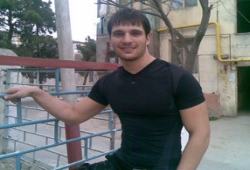
Rights Activists; Chechen Authorities Passing Off Slain Young People as Rebels
Publication: Eurasia Daily Monitor Volume: 6 Issue: 207

Chechen officials claim to have killed and captured a large number of rebels in the republic in recent weeks. However, human rights groups have cast doubts on the claims, saying that some of those identified as rebels were in fact civilian non-combatants.
The Kavkazsky Uzel (Caucasian Knot) website today (November 10) quoted an unidentified Chechen security official as saying that 35 rebels were killed and another 42 rebels and their accomplices were captured in Chechnya in October alone. The source said six rebel bases and nine arms caches were discovered last month, from which 37 small arms, seven anti-tank grenade launchers with 30 rounds and more than 6,000 rounds of small arms ammunition were seized.
Judging by reports this week, the battlefield successes of Chechen security forces are continuing. Interfax reported yesterday (November 9) that security forces had killed a militant on the southern outskirts of the village of Tangi-Chu in Chechnya’s Urus-Martan district.
On November 7, two suspected rebel leaders were reportedly killed on the outskirts of the city of Argun in a special operation led by Chechen President Ramzan Kadyrov himself. Interfax quoted Kadyrov as identifying the two as the “emir of the Shali and Kurchaloi districts, Rizvan Osmaev, aka Gyurza; and his accomplice Khasan Ozdamirov, aka Gerat [Heart].” The Chechen president said Osmaev had put up armed resistance during an attempt to detain him on the outskirts of the village of Belgatoi near the Kavkaz federal highway, firing on and throwing home-made grenades at security forces, and was killed by return fire. His accomplice, Ozdamirov, was discovered and surrounded in a wooded area near Argun, and killed after he fired on security forces. Chechen Interior Minister Ruslan Alkhanov said Osmaev had been responsible for numerous attacks on policemen, military servicemen and civilians (Interfax, November 7).
ITAR-TASS reported on November 6 that a militant who allegedly belonged to the late Chechen rebel warlord Shamil Basaev’s group in 1998-2000 was captured the previous day in the town of Vedeno. Also on November 5, an alleged rebel who reportedly had recently arrived from Azerbaijan, identified as Artur Duzgaev, was killed by police in the Chechen capital Grozny. Two other alleged rebels –a Grozny resident and a resident of the village of Starye Atagi in Chechnya’s Groznensky district– were also detained (Interfax, November 5). Interfax reported on November 3 that a man who had supplied food to a rebel unit from June-August 2007 was detained in the village of Dyshne-Vedeno in Chechnya’s Vedeno district (Interfax, November 3).
Kavkazsky Uzel quoted Chechen human rights activists as casting doubt on the official claims that 35 rebels were killed in special operations last month. “I do not believe that all of those people killed on the territory of our republic in October were members of armed formations,” an anonymous Chechen rights activist told the website. “And I have every reason [for such doubts]. There are many examples of siloviki passing off as members of the armed resistance young people who had absolutely nothing to do with it,” he added. The source cited several cases, including that of Artur Duzgaev, the 21-year-old killed by police in Grozny on November 5, saying that he had been kidnapped by security forces just days after returning to the Chechen capital from Baku and three days before he was killed. “And after that his body was dumped in Grozny and it was announced that he had put up armed resistance, that he had a pistol and wanted to link up with the militants,” the source said (www.kavkaz-uzel.ru, November 10). Kavkazsky Uzel reported yesterday that Duzgaev was a wrestler who recently won a championship in Azerbaijan (www.kavkaz-uzel.ru, November 9).
Kavkazsky Uzel also quoted an unnamed representative of a Chechen NGO as saying that the number of cases of extra-judicial killings of young people who are subsequently accused of being rebels has increased recently and that at greatest risk are relatives or friends of rebels suspected of links or sympathies with the armed underground. “In addition, young people who have returned home from abroad are objects of close attention by the police,” the source told the website. “The siloviki consider the most suspicious those who have returned from Azerbaijan, Turkey, Georgia and some European countries. It is believed that they are recruited there and sent home to join the militants,” he continued. The source said that real recruitment by the rebels does occur, but they are the exception rather than the rule (www.kavkaz-uzel.ru, November 9).




